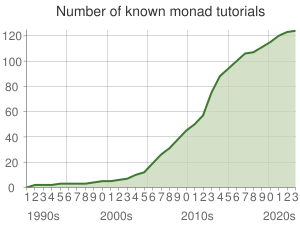An example from programming langauges: there is a problem explaining “monad” to conventional (procedural, object-oriented, etc.) programmers.
I humourously blogged
Meanwhile, I’ve read that monads have a strange property: anyone who comes to understand it loses any ability to explain it to others. That reminds me of the science fiction novel Babel-17. In fact as in the story, language influences thought and perception, which is what I was getting at earlier in this essay. Being a writer on programming topics, I thought I’d take that as a challenge. Maybe I’ll write a truly good explanation of monads; or maybe it will end up joining the hundreds of others that are are either indecipherable or lack proper deep meaning. (See also monad tutorial fallacy)
You should inderstand the Sapir–Whorf hypothesis. There is no matching word, close or otherwise.
That makes me think of translating words you simply don’t know the meaning of, even if they do have translations. The dictionary can tell you what “financial derivative” is, but having done so you still don’t know what it means. So for words with no translation, making up a transliteration on the spot would be just fine.

